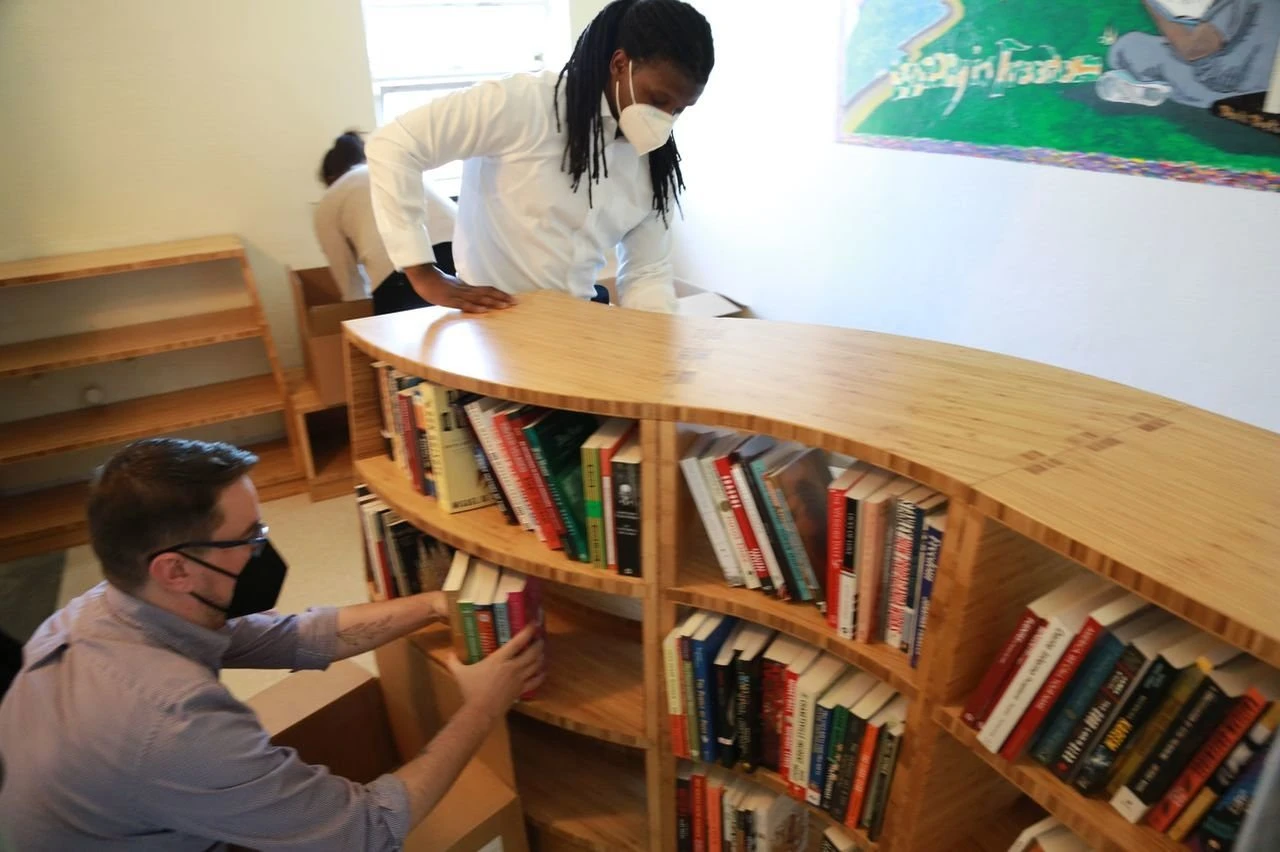While riding to MCI-Norfolk the day we placed the library, I read Malcolm X’s take of his time there. Read how books transformed the way he thought of the world. Walking into the prison, I didn’t know what to expect, though I know prisons and all of their complex brutalities.
A journey like this involves so many people: facility line staff, administrators, leadership from Central. It involved the guy doing time who did a mural that included a portrait of me leaning against a giant edition of The Black Poets. It also included the very real history of prison in Massachusetts. The legacy of books and bars.
The Freedom Reads team with our partners from MASS Design Group witnessed as Jem Stephenson and Brendan Haley, the local builders of the library, ripped bamboo kick plates to suitable heights, pounded hammer-set anchors into concrete, put six beautiful bookcases and benches into the space, turning something dilapidated into a wonder.
And then we added the books. Then we sat down with the books. When I read from Gwendolyn Brooks in that space, when I read from Marlon James's Black Leopard, Red Wolf in that space…
It’s only the first. But as the first, it reminded me that I grew up in a prison where this was not possible. Today it’s more than possible. It’s a reality, as real as the correctional officer who sat on this beautifully handcrafted bench with Malcolm X’s book and read pages as if the words were all that mattered, at least for those moments.
A few weeks later I performed a section of my solo show for the first time in a prison, back at Norfolk. Afterwards, I answered questions for an hour. Tough questions about freedom, about violence, about beauty. One guy, who'd heard about my trials getting admitted to the Connecticut bar after Yale Law School, asked me: "So: Do you feel free?" In the days since I've stayed thinking about him. Next time we visit Norfolk, I'll tell him: I feel more free now for bringing freedom the way I know how into prison: with books.
